Grab your beach hats and your favorite bikini because summer is officially here! Unfortunately, a relaxing day spent poolside isn’t all warm weather is known for—an influx of pesky, unwanted pests is another. That’s right, it’s also officially bug season.
Since insects are cold-blooded and thrive in warmer environments, they tend to be more active during the summer months—not only moving quickly but reproducing at a faster rate as well. Insects and rodents also carry a number of diseases which can cause serious harm to humans and pets.
Those adhering to a cruelty-free lifestyle may find themselves in a dilemma—how to protect themselves from itchy, painful bug bites and the presence of pesky rodents without killing them? Skip the harmful chemicals and try these 10 natural bug repellents and pest deterrents that are sure to protect you—and your pets—from the most annoying of pests!
1. Basil

Yes, that zesty ingredient you’ve been adding to your pasta can help ward off house flies and mosquitoes! When grown in gardens, basil is a major mosquito deterrent due to its strong, fragrant scent. If you are not prone to skin irritants, basil leaves can be crushed and rubbed directly on the skin or can be used in a natural bug repellent spray.
How to Make Basil Repellent:
Pick and wash 5 ounces of basil (stems and all) and place them into a glass container. Boil 4 ounces of water and pour it into the container of basil and let it sit for 3 hours. Remove the leaves and pour the water into a spray bottle. Add four ounces of vodka and mix it with the basil-infused water. You can spray the basil repellent directly onto your skin or clothes but be sure not to spray the concoction into your mouth, eyes, or nose.
2. Bay Leaves

The pungent smell of bay leaves makes a great natural repellent for cockroaches, moths, ants, and flies. Place whole bay leaves in areas where insects are likely to gather. Tape the leaves inside kitchen cabinets, in pantries, around trash bins, or near cracks and crevices in walls. Bay leaves can also be used in sachets and placed in closets or drawers to deter moths. Be sure to replace the leaves every 2 months to ensure effectiveness.
3. Catnip
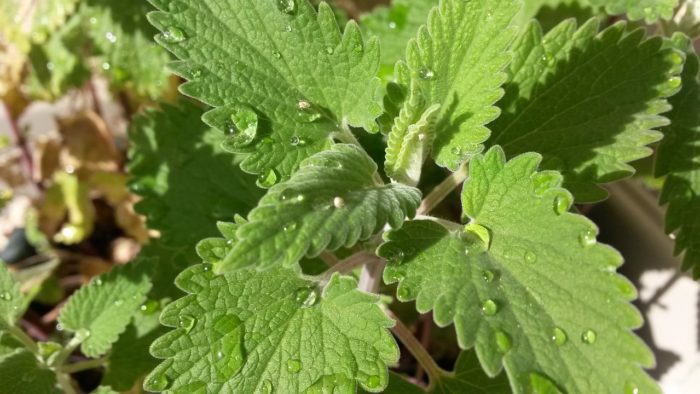
Although it is great at attracting furry feline friends, catnip is a deterrent for fleas, ants, beetles, and cockroaches. Research shows that nepetalactone, a compound found in catnip, is 10 times more effective as a mosquito repellent than DEET, an ingredient found in most chemical repellent sprays. Scatter dried catnip directly around the home or use in a sachet to deter bugs. Catnip is also safe to use around pets and can be sprinkled directly onto your pet’s bedding to help rid fleas.
4. Chives
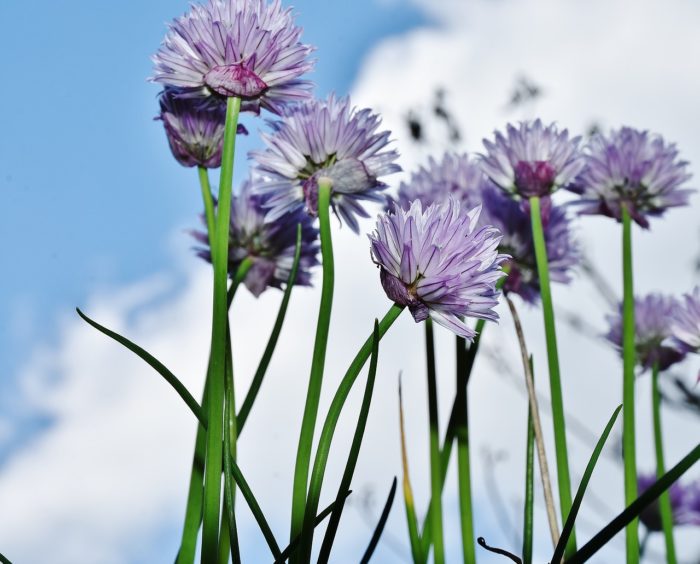
Along with making your baked potato extra tasty, chives are excellent deterrents of ants, moths, and fleas. You can grow them in your garden to repel bugs or use them in sachets around your home.
5. Lavender

Along with its soothing qualities, lavender is also known to repel moths, mosquitoes, flies, and fleas. Simply place bouquets around your home to ward off pesky invaders or apply lavender oil directly to your skin for protection against bug bites.
6. Lemongrass
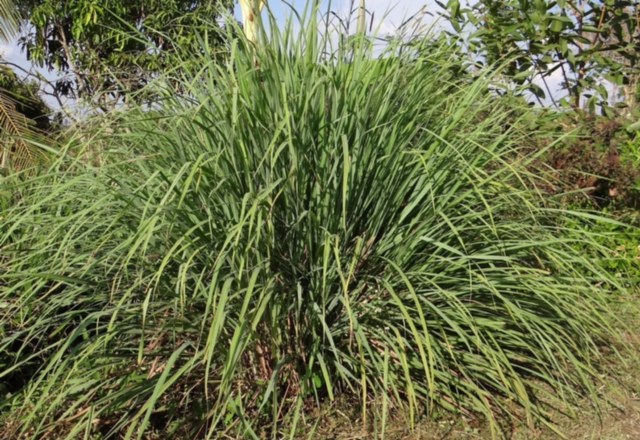
Lemongrass is one of the most effective natural bug repellents and can be used to ward off fleas, house flies, and mosquitoes. Crush the leaves and stems of the plant to retrieve the oil inside and place directly onto the skin or use in a repellent spray.
How to Make Lemongrass Repellent:
Boil 1 cup of water and add in 5 tablespoons of dried lemongrass. Cover with a lid and let it simmer. Strain the herbs out and pour the lemongrass-infused water into a spray bottle along with 1 cup of witch hazel. Store in a cool place. Spray directly onto clothes and skin or spray onto pet’s coat and bedding to rid fleas.
7. Lemon Thyme
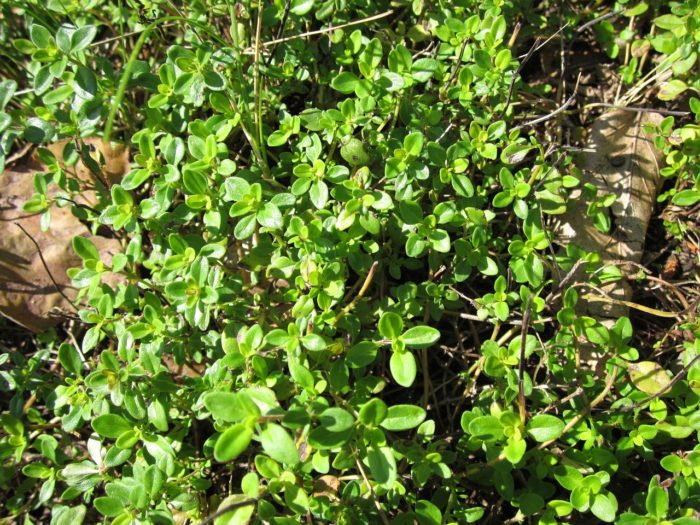
Unfortunately, growing lemon thyme in your yard or garden will not keep the mosquitoes at bay. Once picked and crushed, however, the herb makes a wonderful repellent and the resulting oils can be rubbed directly onto the skin.
8. Mint
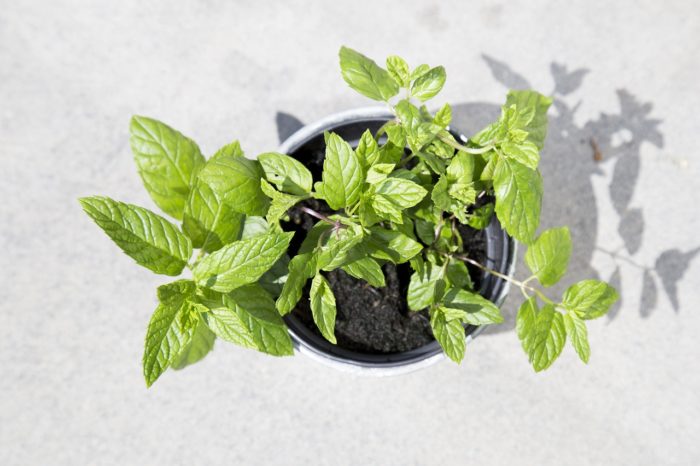
If your home is prone to having rodents, place bowls of mint leaves in areas where there may be rats or mice. Mint leaves can also be rubbed on your pet’s coat to help rid fleas. Other varieties of the mint family also work wonders to deter bugs. Pennyroyal is a great repellent for fleas and ticks while peppermint deters moths, mosquitoes, ants, flies, rats, and mice. Simply crush the dried leaves to release oils and rub directly onto the skin. You can also sprinkle the leaves around your home or use them in a sachet.
9. Sage

Burning sage has been known to have many spiritual and cleansing properties—but it’s also a great repellent of moths and ants!
How to Make Sage Repellent:
Add 1 cup of sage to a quart of water and boil for 30 minutes. Strain the sage out of the water and let cool. Fill spray bottle and it’s ready to use!
10. Rosemary
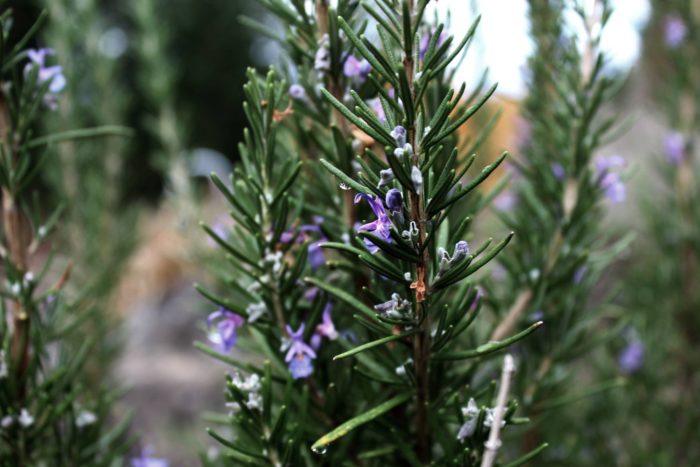
Similar to sage, burning rosemary wards off many bugs including lice, moths, and mosquitoes. You can simply throw it in a campfire or a fire pit during outdoor functions or make your own rosemary repellent spray by following the sage repellent recipe—replacing 1 cup of sage with 1 cup of rosemary.
Warning: Test all homemade natural bug repellent sprays and oils on a small portion of skin prior to using to ensure there are no allergic reactions. Do not use herbal repellents if you know you are allergic to the plants they contain. Similarly, if your pet it known to have skin problems or commonly has adverse reactions to various products, consult your veterinarian before using.
Have you tried any of these natural bug repellants to deter unwanted visitors?
Also by Audrey: How To Create An Eco Lawn That Is Gorgeous *And* Curbs Carbon Footprint
Related: 10 Natural Pest Prevention Tips for Pets
How to Get the Most Out of Natural Remedies
Get more like this—Subscribe to our daily inspirational newsletter for exclusive content!
__
Photo: Pexels, Pixabay, Unsplash




